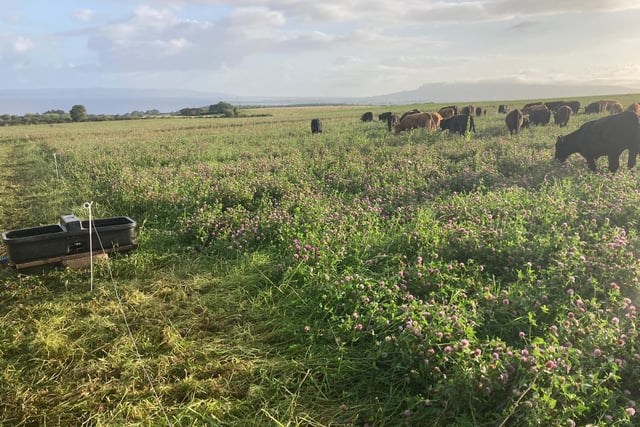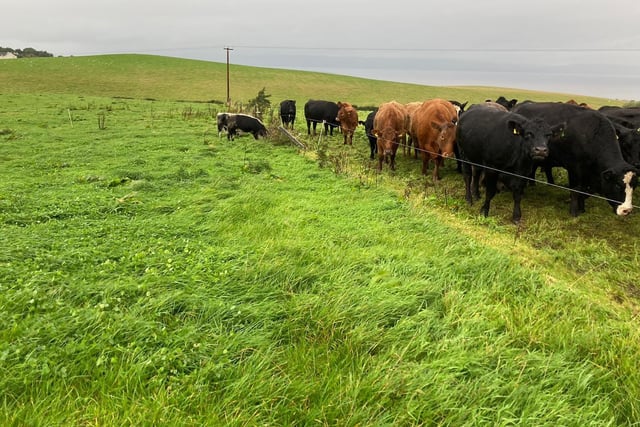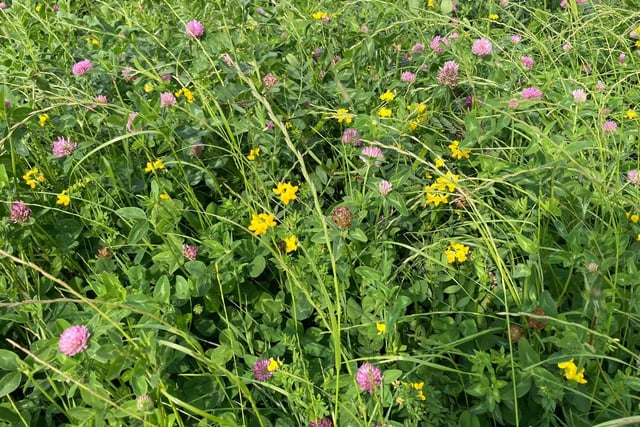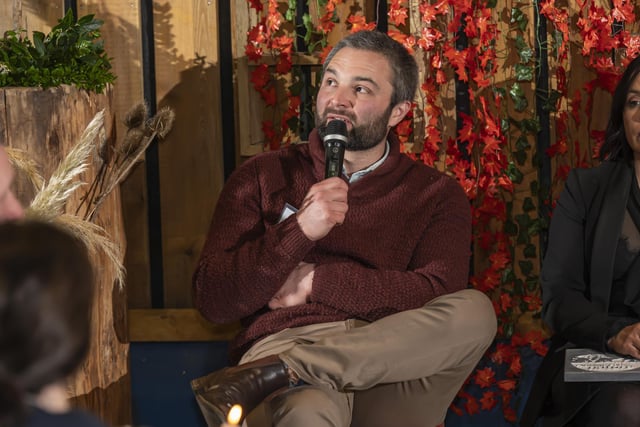However, as important as these elements are, they are by no means the only ingredients making up the vital six inches beneath our feet.
Conventional agricultural practices have tried to reduce soil health to just the chemical, suggesting any problems can be sorted out simply by reaching for artificial inputs. But if growing a crop was as simple as applying everything the field needs in artificial forms and treating the soil as merely a growing medium, there would not be a limit on the yield that could be extracted from the soil.
That this is not the case is because soil, far from just a growing medium, is the largest living ecosystem on earth, and one we frankly understand very little about. It has been said that we know more about the surface of the moon than the soil beneath our feet.
For those of us who practice nature-friendly farming or view agriculture from a more holistic approach, we describe soil using the model of a three-legged stool. The three legs of the stool are the chemical, the biological and the structural. All three must work together to support each other. Prioritising one over the others leads to imbalance.
I like to refer to artificial inputs as a drug. When they are first used there is often an instant hit, possibly addressing the lack of some chemical element. However, as the drug is used more and more, the effectiveness of the hits become less and less. They eventually lead to soil which is entirely reliant on the inputs to be even semi-functional.
For the most part, elements like phosphate are in our soils are at levels far exceeding what the plants need while still being inaccessible. Breeding plants to have short roots, coupled with intensive management practices, leads to plants being unable to access what is already in the soil.
When we look at systems nature has had in place for millennia we see the contrast with where we have decided to artificially improve the soil. Nobody observed anyone spreading a bag of fertiliser on the Great Plains of North America after the bison moved across them, or on the Serengeti in Africa.
These landscapes are where nature has built the greatest soil fertility banks on earth, far beyond what we can imagine on farms. This has happened because of extremely large numbers of animals moving across a landscape, grazing and defecating and then moving on to allow the plants to fully recover before they return.
This inspiration has led to a huge shift in the way we farm in Co. Derry. In the past we were a highly-stocked suckler farm, using a lot of inputs to drive production because that was what we believed and what everyone said was how to do it. The problem was that financially it didn’t stack up. We seemed to constantly be paying a new input bill as soon as we received sales income. It was risky business.
Now we do things very differently. While we still require a certain level of production to make a profit and remain sustainable as a business, it is not the main driver of our decision-making process.
We try to mimic a natural system where cattle and grass are more in sync with each other’s requirements. This is a mindset change away from short, lush, green grass to long, well-rested and diverse swards. This gives the grass more time to grow again after it has been grazed, so we do not need any chemical input. Cattle are ruminants by nature and therefore benefit from a more diverse range of plants and plant growth stages for optimum health and fertility.
We use ultra-high density rotational grazing with electric fencing to keep the cattle where they should be. Sometimes we allow swards to recover for up to 100 days between grazings. Our cow health and fertility has improved, with a 95% pregnancy rate in a six-week breeding window.
Antibiotic usage is down, along with general veterinary bills. We are also moving to a completely grass-based system and removing concentrates, which again reduces our financial risk. The easiest pound to make is the one you don’t spend.
We are establishing multi-species swards on former arable fields to kickstart the soil biology and establish long, diverse root systems. These really suit exceptionally long recovery periods and provide high-quality grazing.
The beauty of this method of regenerative farming is that we are not merely sustaining a system which wasn’t working. One of the most amazing things to witness is the increase in nature on our farm. In the short period of time we have been doing this, birds and beneficial insects are more abundant.
Our business is much less risky from a financial point of view. Money remains within the business, as opposed to going straight out on inputs, and the biodiversity gain is massive. We can mitigate extreme weather much better, which is crucial as our climate is getting much more erratic and unpredictable. There are always improvements to be made and we will soon be experimenting with other management tools such as bale grazing and agroforestry.
If I were to offer any words of wisdom as a nature-friendly farmer, it is to take yourself out of your comfort zone. Challenge what you think you know and try some on-farm trials. Don’t be afraid of making mistakes as these are how you learn. Above all, remember that farming begins and succeeds with soil health.
Jonny will be hosting an event on his farm in July discussing soil health, grazing management and farm business viability. Information on how to secure a place will be posted on the NFFN website.
The Nature Friendly Farming Network (NFFN) is a UK farmer-led network working to mainstream nature-friendly farming as the most sustainable way of producing food.
It is a membership organisation led by farmers working alongside other organisations and public supporters. It unites farmers across the UK who champion how food and farming can positively influence change. Together, it is a strong voice for sustainable food and farming in the UK. Its work is to support farmers at every stage of their journey towards nature-friendly farming.
Through showcasing the experiences of farmers who are leading the way, it shares knowledge that empowers those in transition to produce plentiful food. It is committed to shaping food and farming policies that ensure fairer returns for farmers, improved access to sustainable food and greater stewardship of the environment. It shares farm-level experiences of whole-farm approaches that restore rural environments, regenerate ecosystems, protect biodiversity, act on climate change and offer greater resilience to natural or economic shocks.
Its mission is to take nature-friendly farming to a new level. Visit https://www.nffn.org.uk/join-us/ to find out more about joining.

1. IMG-20240214-WA0016.jpg
Jonny will be hosting an event on his farm in July Photo: freelance

2. IMG-20240214-WA0018.jpg
The farm has ultra-high density rotational grazing with electric fencing Photo: freelance

3. IMG-20240214-WA0008.jpg
Jonny Blair is establishing multi-species swards on former arable fields Photo: freelance
